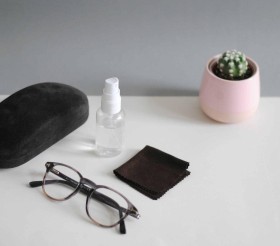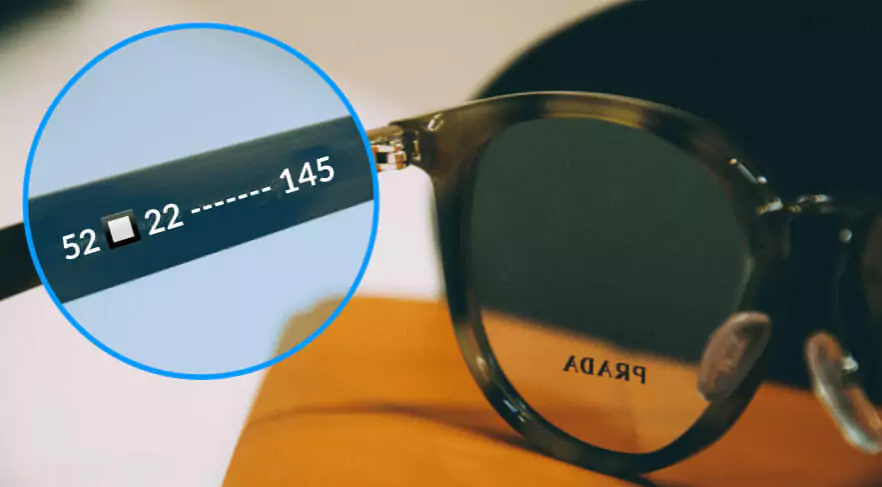According to World Health Organization statistics, 50% of us will need prescription glasses in 2050. Today, up to 80% of Chinese high school graduates wear glasses. The main cause is the time we spend in front of the screens and the time we don't spend outside. We asked an ophthalmologist and an optometrist about it. They've put together a short list of habits that help your eyes stay fit!
Every day we focus our eyes on near objects. We spend more than 11 hours a day in front of the screens and this number is still growing (4 years ago it was only 9 hours a day). The problem is that in the long run, we lose the ability to see sharply into a distance. The eye muscles are forced to constantly focus at the near range without the time for relaxation, which can lead to myopia (nearsightedness). On the contrary, the outdoor environment is full of objects at various distances. Our eyes thus have a natural exercise. This is something you can do also at home:
1. Practice the 20-20-20 rule
When working on a computer, but also when reading, look every 20 minutes for 20 seconds at an object 20 feet (about 6 meters) away. This is the perfect distance at which the muscles in the eye are completely relaxed and do not need to focus.
2. Move away from the screen
The healthy distance from the computer is 70 cm. Try to avoid working with your laptop on your knees. In addition, a laptop on the knees can overheat intimate areas and thus increase the infertility rate of men. We suggest you wear also computer glasses with blue light protection. You can read about how it works here.
3. Change the angle at which you look at the screen
Straighten your body, close your eyes and relax them. Your vision will naturally drop slightly below. You should have a screen in this position to look at it slightly from above. If you watch movies lying on the bed, you tense the eye muscles disproportionately. This also applies to chatting with loved ones on the mobile in all uncommon positions, which are actually quite common. Therefore, at least those who work on your computer for more than 3 hours a day, consider buying a PC monitor. Your cervical spine will also thank you.
4. Adjust the brightness and contrast on the screen
The brightness of the screen should correspond to the surroundings. Avoid watching movies in the dark and also squinting at the dark display in the sun. Your eyes tend to strain to distinguish color if they are blended. We recommend therefore to increase the contrast too. When working on the computer for a long time in the evening, set warmer colors on the display that are more friendly to your eyes.
5. Light up the room
When you read in the dark, you strain your eyes too much, and they, like every muscle in your body, weaken when overloaded. Just give them time to rest and everything will be fine again. However, if you make the habit of reading in the dark, in a few years they can betray you just as muscles betray even the best athletes.
Another major cause of visual impairment is the emission of artificial blue light from digital devices and screens
After working for several hours in front of the screen, we suffer from a headache, we may have trouble falling asleep, we experience eye-strain, and also dry eye syndrome. When we look at the screen, we blink 60% less than usual and then we have blurred vision.
6. Wear computer glasses with blue light protection
If you plan to buy new prescription glasses, be sure to pay blue light protection filter. It significantly reduces the chances of damaging your eyesight and improves sleep and your focus. You can read about how computer glasses with blue light protection work here.
7. Use artificial tears (= eye drops)
When we look at the screens, we forget to blink and our eyes dry. We should blink 15 to 30 times in 1 minute. When we focus on something, for example, while reading, we blink only 3 to 5 times a minute. There are even technologies on the Internet that will count and notify your blinks via webcam. For more offline kind of people, there are eye drops. Your doctor, optometrist, or pharmacist will suggest you the ideal brand.
8. Put on your glasses instead of your lenses
Lenses are a great helper in many everyday activities and sports. For many, they are more comfortable than glasses. However, ophthalmologists recommend replacing them with glasses for at least a few hours a day. When wearing lenses, the surface of the eyeball does not breathe as it should. An inappropriate type of lens transmits little oxygen and this deficiency can cause corneal neovascularization. The cornea "wants to breath" and compensates for oxygen intake by overgrowing blood vessels. These can interfere with vision in worse scenarios. If you wear lenses all day, look closely in the mirror if you see red vessels.
Always see an eye doctor at least once every 2 years for a check-up. You do not have to feel acute problems, as they show themselves in various ways, such as hair loss or increased need for sleep. Allergy sufferers, people with high blood pressure or diabetes should see an ophthalmologist even more often, at least once a year. In the end, examination and measurement of your eyesight at the doctor’s place is for free and paid mostly by the insurance company.























